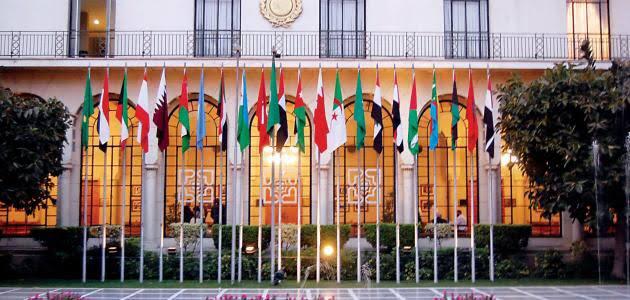A number of Arab states have resorted to so called “medical diplomacy” during the current Covid 19 epidemic, in an effort to strengthen relations with other Arab countries. This form of diplomacy consists of providing vaccines, medical supplies, respirators, personal protective equipment (PPE) for medical staff, offering the assistance of medical teams and the exchange of experience in combatting the disease. Such efforts have added healthcare as another tool in enhancing international relations between Arab states. Despite the pragmatism which characterizes relations between Arab states, some states, such as Saudi Arabia, the UAE and Egypt have opted to focus on the humanitarian aspect, by aiding several Arab countries, to help them confront the COVID-19 pandemic.
For instance, the Tunis announced on the 11th of July that it received over 500,000 doses of COVID-19 vaccines from the UAE following a phone call between the Tunisian President Kais Saied and Sheikh Mohamed Bin Zayed Al Nahyan. The phone call also dealt with bilateral relations and the way to which they can strengthen them, as well as the latest developments regarding COVID-19 in both countries. Medical diplomacy has also proven valuable where the most vulnerable are affected by the pandemic, such as refugees from Syria and Yemen, and others that have been forcibly displaced.
There is a general understanding in the Arab world that rising number of deaths and infections in one country will have consequences across borders, and therefore calls for quick action. This applies to the situation in Tunisia, where the Ministry of Health declared all regions on High Alert as infection rates rose to 100 for every 100,000 people. The MOH spokesperson, Nisaf Bin Alia, announced on the 8th of July that the healthcare system in Tunisia has collapsed, with all the intensive care units full and the medical staff severely overstretched. Concerns for neighboring countries quickly took action. The Algerian Minister of Health, Abdel Rahman Bin Bouzaid, with orders from the Presidency, headed out with a delegation to Tunisia on the 13th of July. The delegation included members of the scientific committee charged with monitoring the spread of COVID-19, 20 tons of medical supplies and PPE as well as over 250,000 doses of COVID-19 vaccines.
The return of Arab nationalism:
The manifestations of medical diplomacy also drew on sentiments of “Arab Nationalism” and Arab solidarity in times of crisis. This was reflected in statements by the Egyptian Armed Forces who delivered medical assistance to Yemen July 2020. “The humanitarian assistance afforded to the Yemeni government is to stand by the Yemeni people in the face of the pandemic and to help prevent it spreading”, adding this aid was motivated by “ the bonds of Arab brotherhood and Egypt’s steadfast position towards its Arab brethren”.
The same logic applied when Egypt established an air corridor to Lebanon after the deadly explosion in the harbor on the 4th of August 2020 , transferring vital medical aid and food supplies to Beirut, and supporting the medical staff of Beirut University who were overwhelmed dealing with the injured with a team of 21 senior doctors from various medical universities in Egypt.
The Palestinian cause in this context of Arab solidarity also once more began to receive attention. The Executive Office for the Arab Ministers of Health on the 20th of May this year donated 500,000 dollars to help meet the needs of the Palestinian people via the Arab Development Fund for the Development of Healthcare systems. The Egyptian Ministry of Health was chosen to lead the support for the Palestinian people and to provide the supplies that match the funds decided upon and send them to the Palestinian lands in the name of the Arab League.
Transcending differences:
Arab solidarity in the face of Covid-19 also provided an opportunity to overcome historical differences. For example, Kuwait chose to transcend feeling of animosity towards countries that had supported Saddam Hussein’s invasion, such as Libya, Tunisia, Mauritania, Algeria, Yemen, Jordan, and the Palestinian Authority, and sent them medical aid.
The former Kuwaiti Minister of Health Dr. Ali Saad Elabidi affirmed during a meeting organized by the regional office for the World Health Organization in Cairo on the 7th of May 2016, Kuwait is aware of the importance of medical diplomacy, and that it is proud of the level of cooperation between the WHO and the regional committee in the Middle East. This was illustrated by Kuwait sending medical supplies to the people of Gaza at the end of last May.
The Kuwaiti News Agency (KUNA) published a report on the 28th of last May quoting the Head of the Disaster and Emergencies Division in the Kuwaiti Red Crescent Society Yousef Al Merag, who said that the Red Crescent Society provided over 85 tons of food and medical supplies to the Palestinian Red Crescent Society. Al Merag further affirmed that the Red Crescent Society through sending aid quickly to the Palestinian people in Gaza hopes to alleviate their suffering. It will also undertake to help those that will require to be flown abroad to be treated in other countries or in Kuwait via an agreement with the Palestinian Red Crescent Society.”
Cementing relations with countries of similar national interests:
Egypt moved to support for the healthcare system in Sudan in relation to infectious diseases and pandemics, with assistance in medical education, the domestic manufacturing of medications, the exchange of experience in dealing with COVID-19, which includes training Sudanese doctors on medical protocols, providing vaccines, providing PCR testing kits, and various medications. Egypt also helping to set up 5 centers for the treatment of Hepatitis C.
Egypt has also pledged to send medical convoys to Sudan in August 2021, with medical teams from the Egyptian ministry of health to help combat the Gambia Mosquito. A campaign to combat polio has also been kicked off in both Egypt and Sudan simultaneously, and protocols are to be implemented to combat rift valley fever and dengue fever. Egypt has agreed to provide training scholarships for Sudanese doctors to attain Egyptian fellowships.
The Egyptian Minister of Health, Dr. Hala Zayed affirmed in the meeting between her and the Sudanese Minister of Health Dr. Omar Naguib on the 7th of July 2021, that this support comes from the shared responsibility between both states and is part of Egypt’s role in the African continent.
Limiting the influence of regional powers on Arab states:
The actions undertaken by Arab states, such as the UAE in Syria, also function to counter and diminish the influence of non- Arab regional powers. The UAE Red Crescent Society, in cooperation with the Syrian Red Crescent Society, in April 2021 sent COVID-19 vaccines to help combat the pandemic in Syria, targeting front line medical staff, the elderly, chronically ill, as well as the displaced. Saudi Arabia also sent medical supplies to Iraq, specifically to the Ministry of Defense, on the 14th of September 2020 to help combat the COVID-19 pandemic.
In conclusion, these forms of medical assistance are likely to bear fruit in the near future in enhancing inter-Arab relations, making them more resilient in the face of stresses and crises, especially as combatting the pandemic requires multi-faceted and multilateral Arab cooperation. In other words, there is an increasing level of understanding among governmental institutions in the Arab world that health issues should be incorporated into foreign policy concerns, and that they are helpful in achieving overall peace and security for all residents of the region. The continuous cooperation in delivering medical aid to all will help to improve the health situation for the region, and a fair and just outcome that the regional office of the WHO is seeking to provide for the region.

